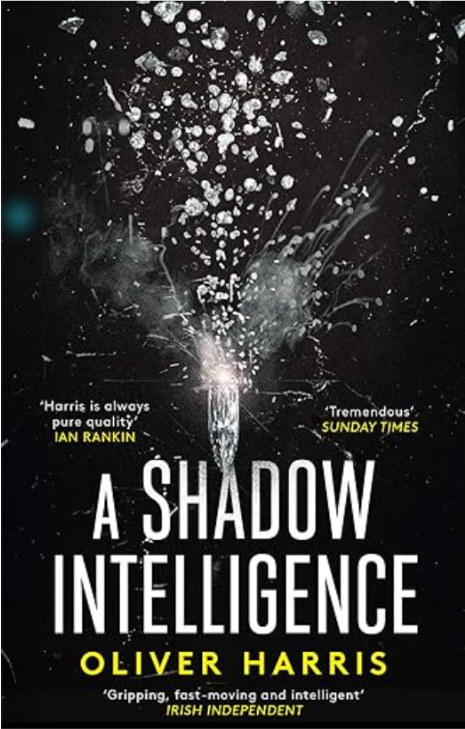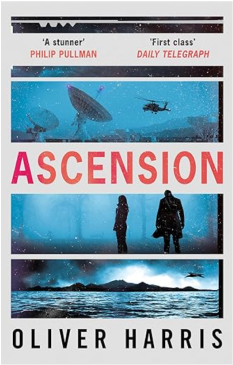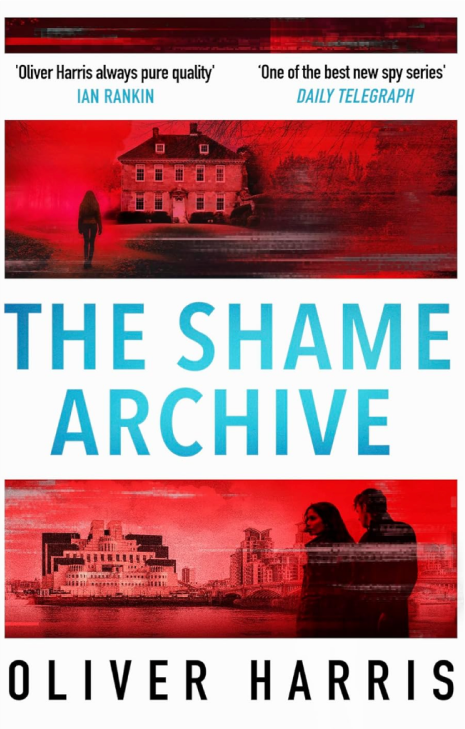Menu
Menu
—

There is a dark side to MI6 that needs men like Elliot Kane – mercurial, inquisitive, free floating. He’s spent fifteen years managing events overseas that never make the papers, deniable and deeply effective. Kane is a ghost in his own life, picking up and dropping personalities as each new cover story comes into play. But when a woman he loves, Joanna Lake, vanishes without a trace in Kazakhstan, he is forced centre stage in his own life.
Drawn ever deeper into a realm of deception, Kane moves from merely infiltrating events to steering them. He’s used to a new mode of hybrid psychological warfare – but snowbound Kazakhstan presents unique challenges. Poised between China, Russia and the West, dictatorship and democracy, state intelligence and an increasingly powerful world of private agencies, it’s impossible to work out who is manipulating who. And Kane’s not the only one trying to figure out where Joanna Lake has gone or what she learned before disappearing.
Unable to trust anyone, hunted by his own colleagues, and with the life of someone he loves at stake, Kane needs to work out who is driving events, and why…

‘A masterful entry into spy fiction. This may be the deepest a contemporary spy novel has penetrated the cold new world of dark web intelligence…An absorbing, superbly written novel likely to stand as one of the best spy novels of the year.’
‘Oliver Harris is always pure quality and I’m loving the hell out of his foray into the contemporary spy novel. Elegant and compulsive.’
‘Tremendous evocation of modern Kazakhstan and the contemporary intelligence landscape. Scary if true, or even half true.’
‘Elliot Kane is an unusually thoughtful spy… a plausibly multi-faceted old school operator with the skills – physical, psychological, intellectual – to negotiate the geopolitical faultlines of central Asia.’
‘An intelligent and thoroughly researched spy-procedural giving razor-sharp insight into the particular challenges of 21st-century espionage.’

Extract from the book
THE SECRET INTELLIGENCE SERVICE PUTS TWO YEARS AND OVER £100K into the training of new field officers. You’re shown how to steal cars, strip weapons, hack bank accounts. There are courses on the use of improvised explosives, two workshops dedicated to navigating by the stars. But nothing about what I had heard one old spy call whiplash. No one tells you how to go home.
You’re marching through the bowels of Tripoli’s Ain Zara Prison on Thursday; Saturday night you’re at a dinner party in Holland Park. Cutlery tinkles. There is something you’ve forgotten. You lock yourself in the bathroom and call a restaurant on Martyrs’ Square to hear a particular woman’s voice and when the phone’s answered there is automatic gunfire in the distance. The world cannot all be real at the same time. You apologize to your hosts as you leave, blaming jet lag, then sit on the Central line hearing mourners wail. After the first few times, officers switch to a desk-based role or they find ways of managing the transition. I can’t do desks, so I had to learn.
I accumulated rituals, which veered in status between superstition and procedure. A lot of these involved returning to particular places —ones that I could touch as if they were charms and say: everything’s under control, you’re here again. The Premier Bar in Jordan’s Queen Alia airport was a favorite. Travel between the lucky and unlucky parts of the world regularly enough and you’ll find yourself killing time in Queen Alia. It was one of the twenty-first century’s great crossroads. The Premier Bar tucked itself away in a corner of the main terminal, a fridge and three aluminum tables, with a clear view across the departures hall. It had Arabic news on a flatscreen TV and bottles of Heineken in a fridge. I thought of it as my local pub.
On this occasion, I was on my way from Saudi Arabia to London, with strict instructions not to stop until I was on English soil. This in itself was ominous — most of my debriefs were held in third countries. My operation had been pulled suddenly. I had one bag and the clothes I wore, which I was starting to realize stank of smoke and petrol. The pale jacket and chinos of a certain type of Englishman abroad are not made for arson.



